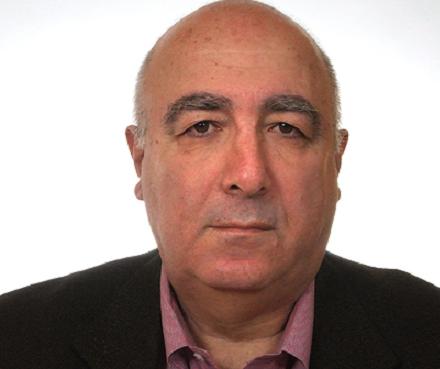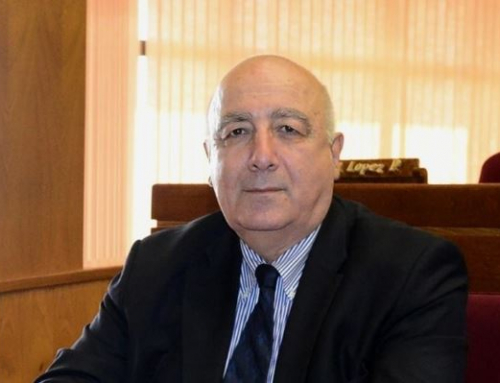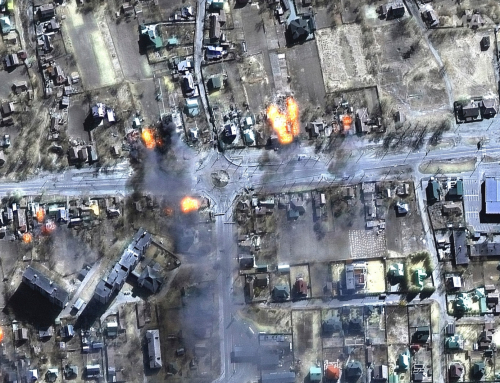
Tedo Japaridze is Chairman of the Committee on Foreign Relations in the Parliament of Georgia.
On June 5th, the New York Times was running an article entitled “Taliban Attack Kills 7 Georgian Soldiers in Afghanistan.”
Despite the title, the article said very little about the circumstances surrounding this tragic event; it focused mostly on an analysis of the shortcomings of the Georgian mission in Afghanistan. If I were given a fair chance of responding to this article directly on the pages of the “New York Times”, it would run as follows:
Sir,
I find the coverage of your paper on the Georgian contribution to military operations in Afghanistan deeply disturbing for reasons of both style and substance (article “Taliban Attack Kills 7 Georgian Soldiers in Afghanistan, 05.08.2013”).
First, in terms of style, I am surprised to note that unlike the coverage of casualties suffered by other nations, including US troops, the victims of the attack are made to suffer a double victimization, being framed as essentially thieving barbarians who have no time for the local population. Allegations of thieving and misconduct are not of course linked directly to the deceased soldiers; this would require actual investigation and reporting. Instead, it is assumed that since they are Georgian, they should have all the alleged negative traits of “a Georgian.” The stain on the name of these “exotic troops,” if unfair, might be considered collateral damage.
There is of course a brief reference to the “utility” of the Georgian troops in keeping the roads open for locals, but little by way of examining the opportunity cost of their absence or the risks that this mundane task involves. Battlefield experience, the living conditions or moral of exotic soldiers, their family and dependents, merit little attention. There seems to be no interest in public opinion at home, that is, Georgia. Throughout the article, there is not a single quote from anyone whose name ends in “idze” or “illi.” The soldiers are nameless, they come from nowhere specifically, suffer no specific dangers, speak “something like Russian,” that is to say they do not even speak English (!), let alone Punjab. In other words, “they had it coming.” In this scheme, it is exotic people killing exotic people under the moral authority of the NYT.
Bottom line: Georgian soldiers are accorded less dignity than mercenaries, although they are men in uniform fighting under “an exotic flag” and, much to the surprise of the NYT’s editorial team, fight battles far away from home. In sum, this is a dehumanizing and infantilizing perspective to say the least, which seems to have a spill-over effect not only on the soldiers as such, but the country of Georgia in general. The fact that Georgia is a very small country, with a GDP that is dwarfed by the annual budget of a single US city and contributes the largest non-NATO force is briefly mentioned, but hardly “evaluated.” Reporters spent little time reflecting on how a nation of this size and means, whose territory is occupied and has thousands of refugees of its own feels when its troops die in a battlefield that is not central to their own national security.
Secondly, in terms of content, the coverage is hardly informative. The only cause for the causalities seems to be “recklessness” and the animosity of the local population. This narrative may treated as the context of every single casualty of a foreign troop in Afghanistan since Alexander the Great; nonetheless, although death makes nice headlines, it is too common to sustain readership, especially if the troops in question are not homegrown. There is not a single comment from the press officer of the Georgian army, a bit of background on the mission or even an examination of the wider context of the campaign, especially in view of the pullout of other forces in the region.
To the reports of this informative article, I would ask the question of whether this kind of coverage would be tolerated had the troops that died in action been of US or NATO origin in general. The answer is obvious, but the question is legitimate.
Because this letter would never be hosted by the NYT, I take this opportunity to offer my deep condolences and appreciation of service to the men lost in action. Our nation has assumed more than its fair share to honor its international commitment to its allies, assuming a burden in excess many NATO member states. We did so with pride. Georgia’s commitment to its allies speaks through concrete casualties rather than abstract principles. For the record, the men who died have names: private first class Zviad Sulkhanishvili, 22; corporal Giorgi Adamov, 23; private first class Giorgi Guchashvili, 21; corporal Boris Tsugoshvili, 29; private first class Zurab Gurgenashvili, 32; Teimuraz Ortavidze, 25; private Mikheil Narindoshvili, 26. The recent attack brought total death toll of the Georgian soldiers in the ISAF mission to 29; at least 120 Georgian soldiers were wounded in Afghanistan.
Alas, as the mission in Afghanistan in apparently coming to an end, we may now reflect on our own schedule of pulling out, leaving to the trained and linguistically competent Afghan forces the mundane task of keeping roads open. We did our part and will be ready to do so again whenever we are needed. When our troops depart, they will be received at home with the honor and recognition of service they deserve.
Tedo Japaridze
Chairman
Foreign Relations Committee
Parliament of Georgia





No one in Afghanistan speaks Punjab, you might be meaning Pashto. I think investigation and analysis of proper conduct is worthwhile for any armed forces operating in a conflict zone. While I do understand that the NYT article came at an unfortunate time as Georgia is mourning a tragic loss of soldiers, I do want to point out that particularly the NYT has been highly critical of the conduct also of U.S. forces in Afghanistan (cf recent coverage of military conduct in Wardak province). I also think that if offense has been taken with this article, the best approach may be to write a letter to the editor of the NYT and express this sentiment to the staff and readership of that newspaper.
First of all it’s not a letter to the NY Times! … It’s just my personal reaction on the article published in that newspaper and nothing else, indeed My text was kindly picked up by the “Democracy&Freedom Watch”! As I admitted in my piece, this text would never be hosted by the NY Times and thus was never intended to be published there.
As far as I know, Ambassador Gegeshidze has already submitted his Letter to the Editor and that letter has not been published yet.
Regards,
Tedo Japaridze
batono Tedo, I understand that you did not mean this article for the New York Times necessarily, and that the Ambassador has already sent his letter to the editor. Nonetheless, I do think it would be good if you also sent your protest to them directly, not just publish your reaction in the Georgian press. As an ordinary citizen I was looking for ways how to reach out to the NYT, and sent my protest messages via three different ways. I believe, that being a former Ambassador to the US, a former Minister of Foreign Affairs, and holding your current position, your message to them would have a very considerable weight and would be much more difficult to disregard, unlike those that they receive from other citizens of Georgia.
My respect to you.
Tea
and do you think the NYT would even bother to read it , let alone publish it, at least this way millions of ordinairy people will get to read about it and form an opinion via facebook
I am sorry; I am not an expert on which languages are spoken in Afghanistan! Maybe I was supposed to write Pashto. Sorry for that if you think that it’s a core issue of my text.
Tedo Japaridze
Then there seems to be a misunderstanding. I thought this was supposed to be a letter (given it starts out with “Sir,…” and seems to be addressed directly to NYT). And I do think it is a core issue to be painstakingly correct, in an opinion piece, article, letter or any other format that is supposed to refute claims that Georgians are behaving themselves in disrespectful ways to anyone. How can we outrage ourselves about Afghans saying Georgian sounds like Russian, if we ourselves make false claims about their language?
Secondly, I agree that there should be a response by the Georgian government, diplomatic representation, civil society, indeed anyone feeling they are qualified to comment. That is the way pluralist shaping of opinion is conducted in democracies. Only may I say, I find it sort of peculiar that Georgia would self-victimize in its response. It was the Georgian government (though it is true, a different government to nowadays) who, by their own free will, decided to dispatch this large contingent to ISAF. Living conditions and risks, one would presume, were part of the assessment any decent military leadership and government (via the MoD and NSC) would have conducted before coming to such a decision. And what I am hearing nowadays very often as a justification is that the sacrifice Georgian soldiers make in Afghanistan is, indeed, closely linked to the country’s security interests. Which you seem to contradict by saying “troops die in a battlefield not central to their own national security.” I would be interested, then, to hear your opinion — as the chairman of a relevant parliamentary committee — about the government’s continued strategy of ISAF and, later on, Resolute Support troop contribution.
And, at least as of today, the letter of Ambassador Gegeshidze has been posted on the page of the NYT: http://www.nytimes.com/2013/06/13/opinion/georgians-in-afghanistan.html?_r=0
So I believe you may still bring your legitimate concern about the article to the attention of the NYT’s readership without prejudging whether they would censor you.
Looks you missed the beginning of that article:
“If I were given a fair chance of responding to this article directly on the pages of the “New York Times”, it would run as follows:
Sir,”… By the way, today the NY Times published Ambassador Gegeshidze’s letter.
That is just what I am saying: maybe you should have sent them your piece first of all before deciding that they wouldn’t publish it anyway. And the way it stands now it looks just like a letter that has not been sent.
But I am more interested then, what is your opinion about the government’s strategic decision to continue supporting NATO engagement in Afghanistan? (Or did I misunderstand Mr Alasania’s statements to that effect as well?)